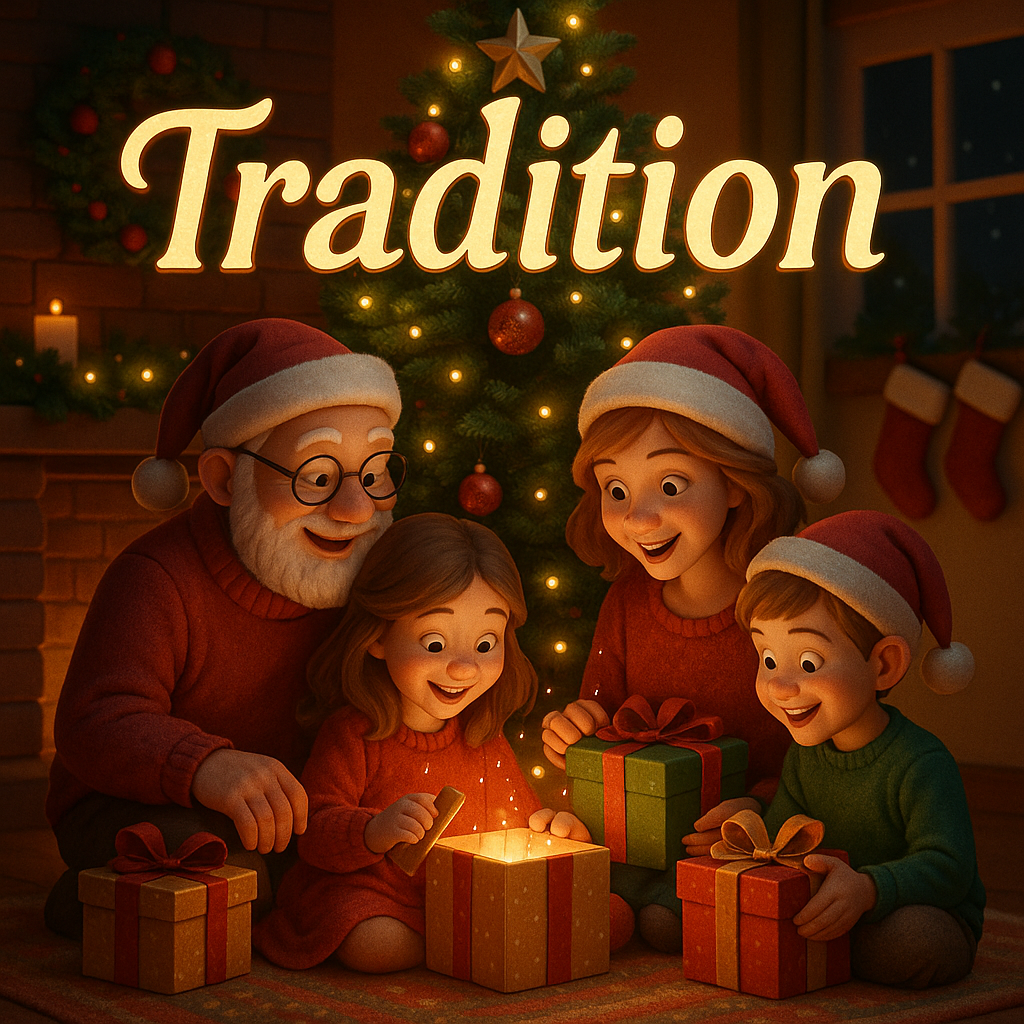Tradition
Definition
Tradition refers to customs, beliefs, or practices passed down from generation to generation, often serving as a cultural or social heritage.
Parts of Speech
- Noun
Pronunciation
American English
- IPA Pronunciation: /trəˈdɪʃ.ən/
- Respelling: truh-DISH-uhn
British English
- IPA Pronunciation: /trəˈdɪʃ.ən/
- Respelling: truh-DISH-uhn
Etymology
The word "tradition" originates from the Latin "traditio," meaning "a handing down" or "delivery," derived from "tradere," which means "to hand over or deliver." It entered Middle English through Old French and has been associated with cultural and social practices since the 14th century.
Derivatives
- Traditional (adjective)
- Traditionally (adverb)
- Traditionalism (noun)
- Traditionalist (noun/adjective)
- Nontraditional (adjective)
Synonyms
- Custom
- Heritage
- Ritual
Antonyms
- Innovation
- Modernity
- Change
Usage
The noun "tradition" is used to describe cultural or social practices, such as "The festival is rooted in ancient tradition." It can also refer to inherited methods or beliefs, as in "Following family tradition, they prepared a special meal."
Related Terms
- Culture: The arts, beliefs, and practices of a particular society or group.
- Legacy: Something handed down from the past.
- Convention: A widely accepted way of doing something.
Detailed Definitions
Noun
- The transmission of customs or beliefs from generation to generation: Refers to the process of passing down practices and values.
- Example: "The town's annual parade is a cherished tradition."
- A long-established custom or belief: Describes a specific practice that has been maintained over time.
- Example: "It is a family tradition to open gifts on Christmas Eve."
- A cultural or societal practice: Refers to norms or rituals shared by a group of people.
- Example: "The festival celebrates the traditions of the indigenous community."
tradition



🇨🇳 Mandarin
- 传统 (chuántǒng): tradition
- IPA Pronunciation: /ʈʂʰwan˥˥thʊŋ˨˩˦/
- Respelling in English: chuan-tong
🇮🇳 Hindi
- परंपरा (paramparā): tradition
- IPA Pronunciation: /pəɾəmpəɾaː/
- Respelling in English: parampara
🇪🇸 Spanish
- Tradición (tradición): tradition
- IPA Pronunciation: /tɾaðiˈθjon/
- Respelling in English: tradicion
🇫🇷 French
- Tradition (tradition): tradition
- IPA Pronunciation: /tʁadi.sjɔ̃/
- Respelling in English: tradition
🇦🇪 Modern Standard Arabic
- تقليد (taqlīd): tradition
- IPA Pronunciation: /taqliːd/
- Respelling in English: taqlid
🇧🇩 Bengali
- ঐতিহ্য (ôitihyō): tradition
- IPA Pronunciation: /ɔitihjɔ/
- Respelling in English: oitihyo
🇷🇺 Russian
- Традиция (traditsiya): tradition
- IPA Pronunciation: /trəˈdʲit͡sɨjə/
- Respelling in English: traditsiya
🇵🇹 Portuguese
- Tradição (tradição): tradition
- IPA Pronunciation: /tɾɐdiˈsɐ̃w̃/
- Respelling in English: tradicao
🇮🇩 Indonesian
- Tradisi (tradisi): tradition
- IPA Pronunciation: /tradisi/
- Respelling in English: tradisi
🇩🇪 German
- Tradition (Tradition): tradition
- IPA Pronunciation: /tradɪˈʦi̯oːn/
- Respelling in English: tradition
🇯🇵 Japanese
- 伝統 (dentō): tradition
- IPA Pronunciation: /den.toː/
- Respelling in English: dento
🇻🇳 Vietnamese
- Truyền thống (truyền thống): tradition
- IPA Pronunciation: /ʈʂwɨən˧ˀ˦ tʰwəːŋ˧˥/
- Respelling in English: truyen thong
🇰🇷 Korean
- 전통 (jeontong): tradition
- IPA Pronunciation: /t͡ɕʌn.tʰoŋ/
- Respelling in English: jeon-tong
🇹🇷 Turkish
- Gelenek (gelenek): tradition
- IPA Pronunciation: /ɟelenek/
- Respelling in English: gelenek
🇵🇰 Urdu
- روایت (ravāyat): tradition
- IPA Pronunciation: /rəˈvɑːjət/
- Respelling in English: ravayat





